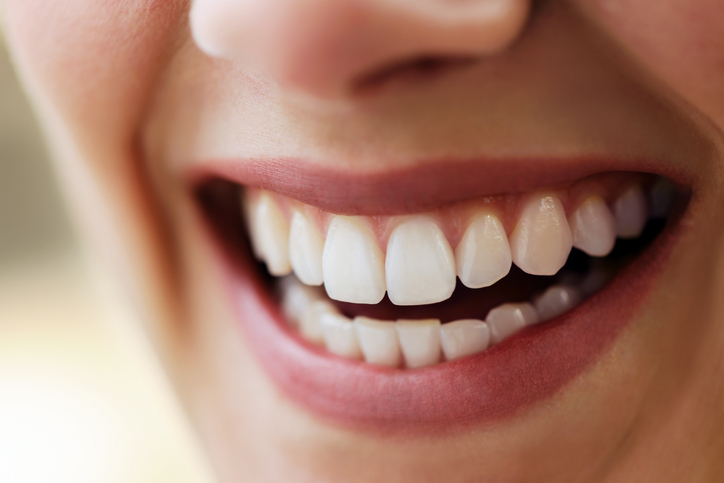Your gums are sensitive tissues that can become inflamed, damaged and diseased without proper care. Brushing, flossing and using commercial mouthwashes all help to keep them in tip-top shape. You might be wondering if nutrition plays a part as well. The answer to the question “does what you eat affect gum disease?” is yes. You can help prevent infection by eating certain foods that combat harmful bacteria. These foods are far from exotic, are nutritious and taste good. Learn what to eat to have a healthier, happy mouth.
The experts at Precision Nutrition advise people to indulge in a diet of whole foods. These are items that are not processed, mostly unrefined and with little to no additives. Examples are fresh fruit and vegetables you find in the produce section of your grocery store. Precision Nutrition also advises eating lean proteins such as boneless skin removed chicken and turkey breast and fish. Cook these items in as little oil as possible to keep them low in fat. Take a fish oil supplement daily to further fight gum disease.
The Listerine company also has recommendations when it comes to healthy gums. One thing they advise is to consume cranberries. This tart fruit is high in anthocyanins which allegedly stops pathogens from attaching and colonizing on teeth. Other foods rich in anthocyanins include more dark berries, black rice and eggplant peel. Apples are also high on the list of “gums approved” foods. They require much chewing which increases saliva production. This extra saliva helps reduce the mouth’s acidity thus lowering bacteria numbers. Leafy green veggies do the same thing. Also, make milk or cheese part of your diet as the protein in these are acid neutralizers. Another tip is to add raw onion to your burgers and salads as it is a known bacteria fighter.
Natural Society recommends avoiding sugar-laden foods to help prevent teeth and gum problems. Instead, they recommend eating raisins to satisfy your desire for something sweet. Also, they promote drinking tea to help fight plaque and bacteria accumulation. You can even rinse your mouth with tea when it is not possible to brush your teeth and gums right after eating. Among items to avoid indulging in too often are sticky and hard candies, creamy salad dressings, ketchup, regular soft drinks, citrus fruits and sports drinks.
Finally, The American Dental Association’s Mouth Healthy website reminds us that drinking flurinated water helps fight cavities and the water itself helps keep your mouth clean so bacteria is less likely to grow. So it might be a good idea to forego drinking bottled water in favor of your city’s flurinated tap. You can add a little cherry juice, cucumber or mint to add variety to your H20. Make it a habit to sip water throughout the day and rinse your mouth well with it following meals and snacks.
Good general nutrition is imperative to keep you well. A malnourished individual runs a higher risk of gum infection and other issues than one who eats a balanced diet on a consistent basis. According to Health.gov, an example of a good adult diet of 2000 calories a day consists of two and one half cups of vegetables, two cups of fruit (one can be of juice), six ounces of whole grains, three cups of dairy, five and a half ounces of protein and five teaspoons of oils.
Your oral health is extremely important. Gum disease is a serious ailment that can lead to tooth loss, coronary issues, stroke, asthma, breathing issues and rheumatoid arthritis. Poor nutrition contributes to the development of both gingivitis and the more serious condition periodontitis. Improve your diet, see your dentist regularly and brush and floss daily to help prevent the devastating consequences of gum disease.




